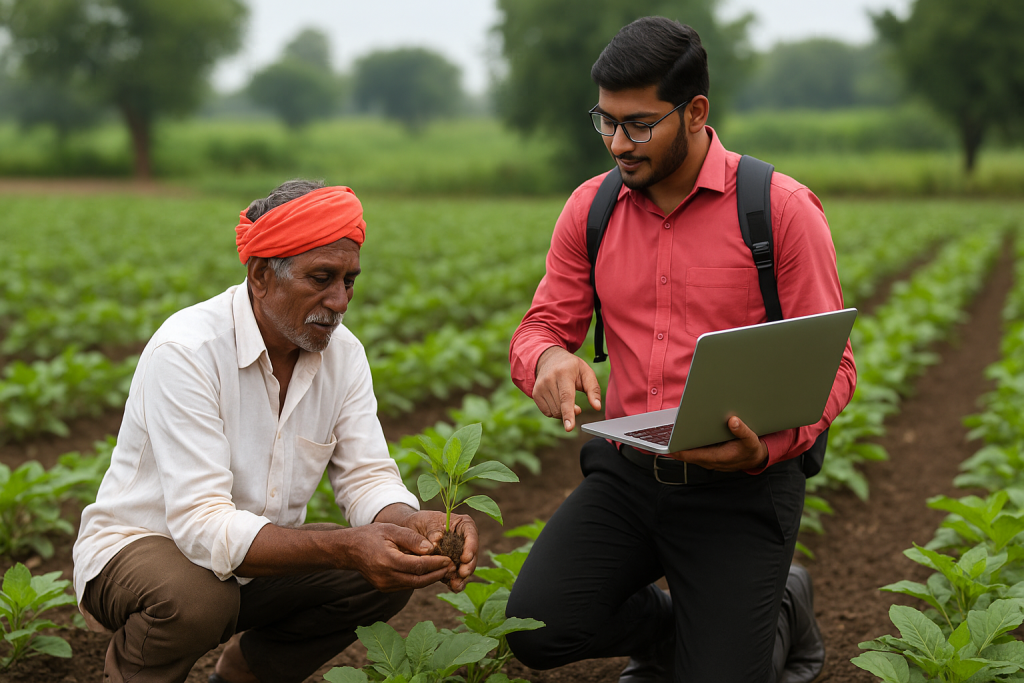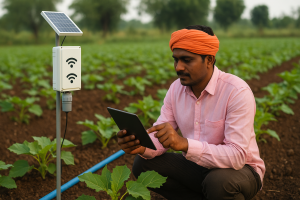India’s agriculture sector is vast, diverse, and deeply rooted in tradition. Yet, it faces persistent challenges—inefficient supply chains, price volatility, lack of real-time data, and limited access to modern tools. But a new wave of agri-tech startups is stepping in to rewrite this story.
These startups are not only bringing technology to the fields but also building bridges across the agricultural value chain, from input procurement to market access. Their solutions are improving productivity, profitability, and transparency in Indian farming like never before.
Redefining Farming with Innovation
What makes these startups different is their end-to-end approach. They are not just focused on one problem, but rather on transforming every stage of farming:
1. Digital Input Marketplaces
Platforms like AgroStar and BigHaat allow farmers to order high-quality seeds, fertilizers, and pesticides through mobile apps or helplines. This eliminates the need to depend on local retailers and ensures better pricing and product quality.
2. Advisory Services Using AI
Companies like Gramophone use artificial intelligence and data analytics to provide tailored crop advisories. Farmers get real-time information on pest threats, rainfall predictions, and crop-specific advice in their local language via app notifications or SMS.
3. Smart Logistics & Cold Chain Solutions
Startups such as Crofarm and WayCool are building efficient logistics networks to reduce post-harvest losses. Their cold storage and just-in-time delivery models help fruits, vegetables, and perishables reach markets fresh and fast.
4. Blockchain for Traceability
Traceability is becoming critical, especially for exports. Startups like TraceX use blockchain to document every step in a crop’s journey—from the field to the consumer—ensuring food safety, quality assurance, and premium pricing.
5. Online Mandis & Market Linkage
Platforms such as Bijak and eNAM help farmers and traders discover fair prices and transact directly. These digital mandis are reducing middlemen dependency and bringing price transparency.

Empowering Smallholder Farmers
Most Indian farmers operate on less than two hectares of land. These startups focus on accessibility and simplicity, offering services in regional languages and supporting digital payments, UPI, and even cash-on-delivery models.
Some also integrate with FPOs (Farmer Producer Organizations) to scale services across villages and districts.
Government and Private Support Fueling Growth
With initiatives like Agri Startup Challenge, Digital Agriculture Mission, and funding from venture capitalists, the ecosystem for agri-tech innovation is booming. Rural youth are increasingly viewing agriculture as a tech-enabled, profitable venture, not just a livelihood.
Conclusion
Startups are not just adding technology to farming—they’re reshaping the future of agriculture. With every digital transaction, every smart advisory, and every transparent deal, they are building a stronger, more connected, and more profitable agricultural economy.
At Krishi Gyaan, we champion these innovations and believe that with the right tools, every Indian farmer can thrive in the modern agri economy.






